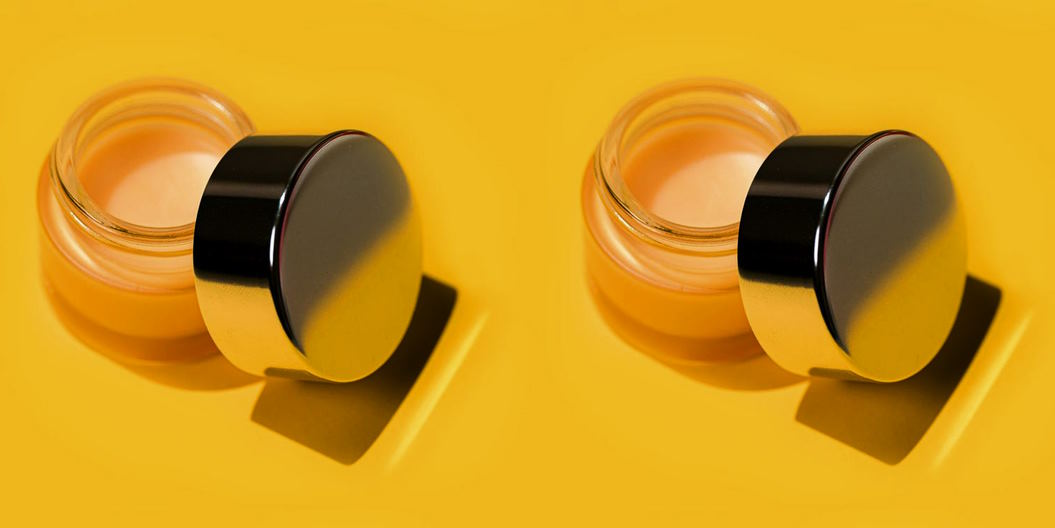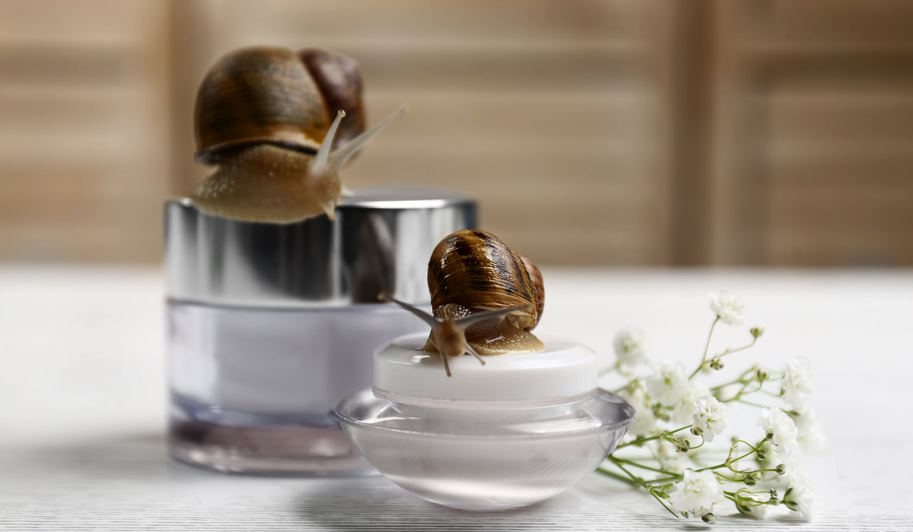Unusual Skincare Ingredients: The Surprising Benefits of Snail Mucin, Bee Venom, and More

In recent years, the world of skincare has seen a surge in popularity of unusual and unexpected ingredients in their formulations. From snail mucin to bee venom, these ingredients might sound strange, but they are packed with a host of benefits for the skin. In this blog post, we’ll explore some of the surprising benefits of these ingredients and why they have become a staple in many skincare routines. So, get ready to discover how snail slime, bee venom, and other unusual ingredients can transform your skin.
Unlocking the Power of Snail Mucin: The Ultimate Guide to Skincare Benefits
Snail mucin has been a popular ingredient in Korean skincare for years, but it is now gaining popularity worldwide due to its numerous benefits for the skin. Snail mucin, also known as snail secretion filtrate, is a sticky substance that snails produce to protect themselves from environmental stressors.
The process of obtaining snail mucin is cruelty-free, as it is collected from snails that are bred in a controlled environment. The snails are allowed to crawl on a mesh surface and their mucin is collected using a gentle, non-invasive process.
One of the main benefits of snail mucin for the skin is its ability to increase hydration. In addition, snail mucin contains hyaluronic acid, which is a natural humectant that attracts and retains moisture in the skin. This helps keep the skin hydrated and plump, reducing the appearance of fine lines and wrinkles.
In addition to its hydrating properties, snail mucin also stimulates collagen production in the skin. Collagen is a protein that gives the skin its structure and elasticity, but its production decreases as we age. By increasing collagen production, snail mucin can help to improve skin firmness and reduce the appearance of wrinkles.
Snail mucin also has anti-inflammatory properties, which can help reduce redness and skin irritation. In addition, it contains allantoin, which is a natural compound that soothes and heals damaged skin. This makes snail mucin a great ingredient for those with sensitive or acne-prone skin.
Numerous skincare products contain snail mucin, including serums, moisturizers, and sheet masks. When looking for a product that contains snail mucin, it is important to choose one with a high ingredient concentration. Look for products that list snail mucin as one of the first few ingredients on the label.
Overall, snail mucin is a highly beneficial ingredient for the skin, and its popularity is well-deserved. Its ability to hydrate, stimulate collagen production, and reduce inflammation make it a great addition to any skincare routine.

Unleashing the Beauty Benefits of Bee Venom: A Revolutionary Skincare Solution
Bee venom, also known as apitoxin, is a natural toxin that honey bees produce. While bee venom can cause an allergic reaction in some people, it has also been found to have numerous benefits for the skin.
To obtain bee venom for skincare products, beekeepers use a special collector that sends a small electric current to the bees. The bees then respond by stinging the collector, but their stingers are left behind and they are unharmed. The venom is then collected from the stingers and purified for use in skincare products.
One of the main benefits of bee venom for the skin is its ability to increase collagen and elastin production. Collagen and elastin are proteins that give the skin its structure and elasticity, but their production decreases as we age. By increasing their production, bee venom can help to improve skin firmness and reduce the appearance of fine lines and wrinkles.
Bee venom also contains melittin, which is a peptide that has been found to have antibacterial and anti-inflammatory properties. This makes it a great ingredient for those with acne-prone or sensitive skin, as it can help to reduce redness and inflammation.
In addition to its anti-aging and antibacterial properties, bee venom has also been found to improve skin texture. In addition, it helps stimulate blood flow to the skin, giving it a more radiant and youthful appearance.
Numerous skincare products contain bee venom, including serums, moisturizers, and masks. When looking for a product that contains bee venom, it is important to choose one formulated by a reputable brand and tested for safety. It is also important to patch test the product before using it on your face to ensure that you are not allergic to bee venom.
Overall, bee venom is a powerful ingredient for the skin that can provide numerous benefits. Its ability to increase collagen and elastin production, improve skin texture, and reduce inflammation make it a great addition to any skincare routine.
The Buzz on Propolis: Exploring Its Benefits for Skincare
Propolis is a resinous substance that bees collect from tree buds and other plant sources. It is used by bees to seal cracks in their hives and to protect against bacteria and other pathogens. Propolis has been used for centuries for its medicinal properties and is now gaining popularity in skincare products.
 To obtain propolis for skincare products, beekeepers use special screens that allow the bees to enter and exit their hives but collect the propolis as they do so. The propolis is then purified and processed for use in skincare products.
To obtain propolis for skincare products, beekeepers use special screens that allow the bees to enter and exit their hives but collect the propolis as they do so. The propolis is then purified and processed for use in skincare products.
One of the main benefits of propolis for the skin is its antibacterial and anti-inflammatory properties. Propolis contains numerous compounds that have been found to have antimicrobial properties, which can help to reduce acne and other skin infections. It also has anti-inflammatory properties that can help to reduce redness and swelling in the skin.
Propolis also has the ability to increase skin hydration. It contains flavonoids, antioxidants that can help protect the skin from damage caused by free radicals. Additionally, propolis has been found to increase the production of hyaluronic acid in the skin, a natural humectant that helps keep the skin hydrated and plump.
Another benefit of propolis for the skin is its ability to improve wound healing. Propolis has been found to have a regenerative effect on the skin, which can help to speed up the healing process. It has also been found to have an analgesic effect, which can help to reduce pain and discomfort associated with wounds.
Numerous skincare products contain propolis, including toners, serums, and moisturizers. When looking for a product that contains propolis, it is important to choose one with a high ingredient concentration. Look for products that list propolis as one of the first few ingredients on the label.
Overall, propolis is a powerful ingredient for the skin that can provide numerous benefits. Its antibacterial and anti-inflammatory properties, ability to increase skin hydration, and improve wound healing make it a great addition to any skincare routine.
The Wonders of Centella Asiatica: A Complete Guide to Skincare Benefits
Centella asiatica, also known as gotu kola, is a herb that has been used in traditional medicine for centuries. It is native to Asia and is now gaining popularity in skincare products for its numerous benefits.
To obtain centella asiatica for skincare products, the plant is harvested and then processed into various forms such as extracts, oils, or powders.
One of the main benefits of centella asiatica for the skin is its ability to improve skin elasticity. It contains compounds known as triterpenoids that have been found to increase collagen production, a protein that gives the skin its elasticity. This can help reduce fine lines and wrinkles and give the skin a more youthful appearance.
Centella asiatica also has anti-inflammatory properties, which can help reduce skin redness and irritation. This makes it a great ingredient for those with sensitive or acne-prone skin. In addition, it has been found to inhibit the production of pro-inflammatory cytokines, which can contribute to inflammatory skin conditions.
Another benefit of centella asiatica for the skin is its ability to increase collagen production. Collagen is essential for maintaining the structure and elasticity of the skin, and its production decreases as we age. Therefore, by increasing collagen production, centella asiatica can help to improve skin firmness and reduce the appearance of fine lines and wrinkles.
Numerous skincare products contain centella asiatica, including serums, moisturizers, and masks. When looking for a product that contains centella asiatica, it is important to choose one with a high ingredient concentration. Look for products that list centella asiatica as one of the first few ingredients on the label.
